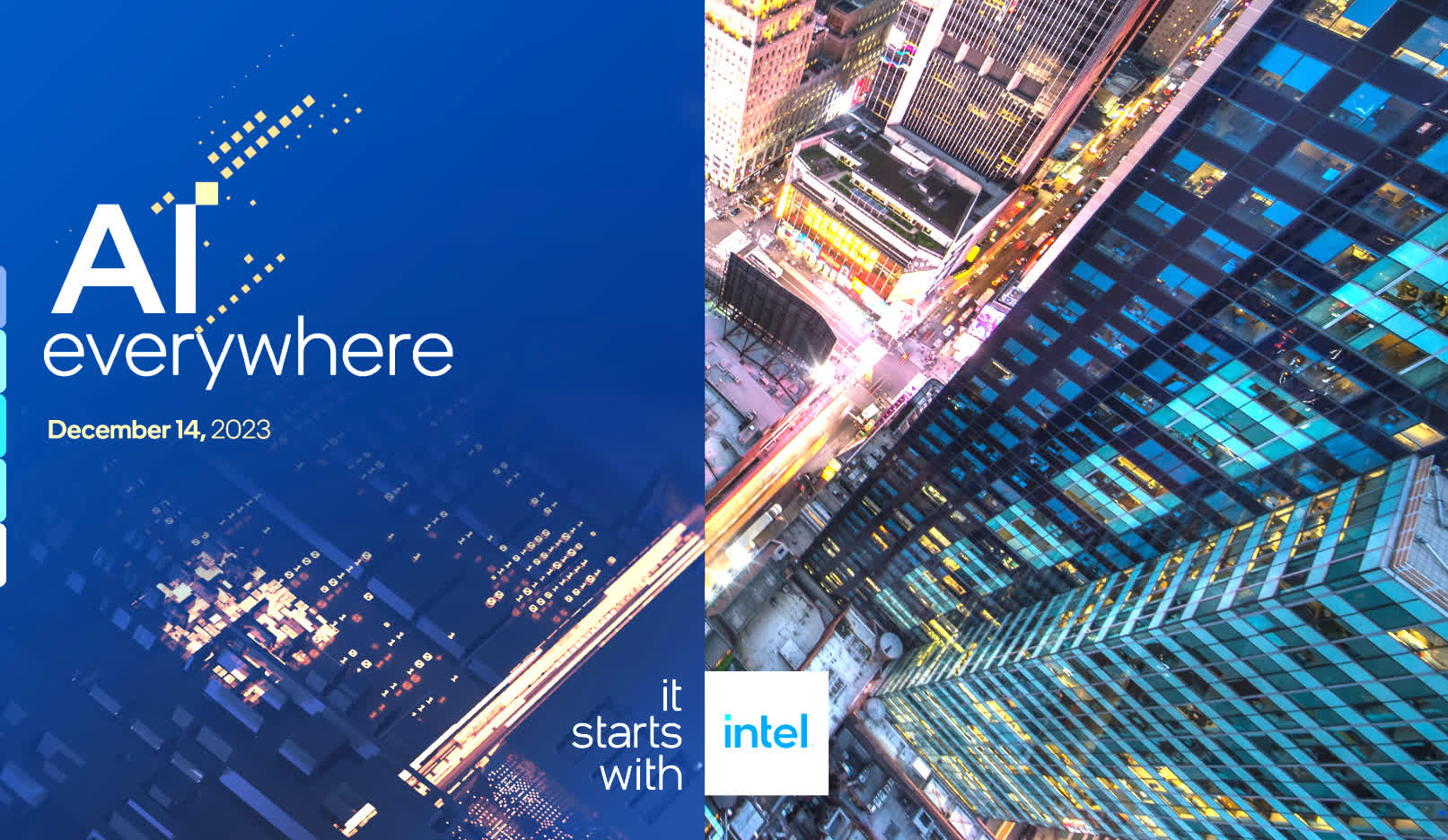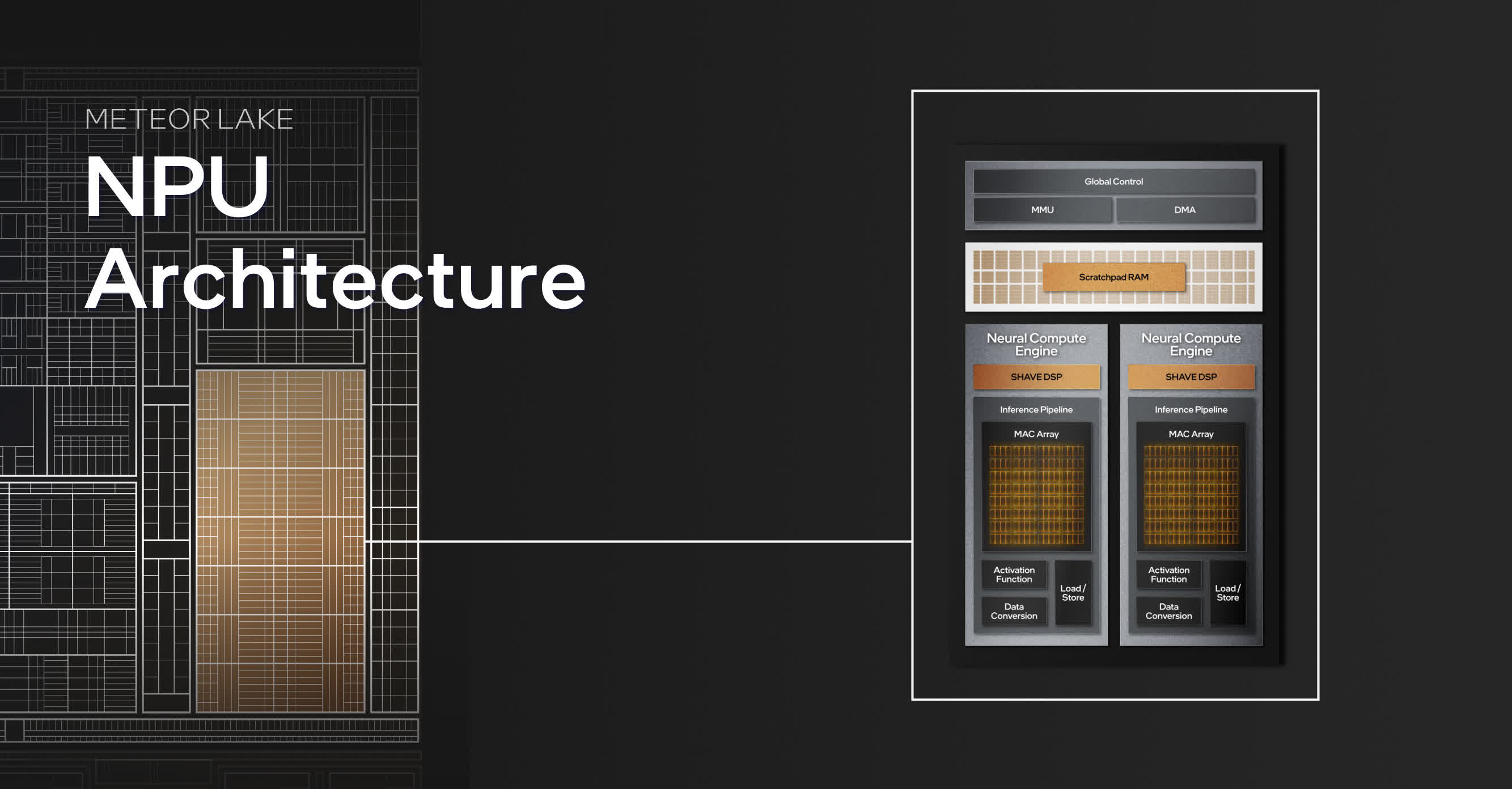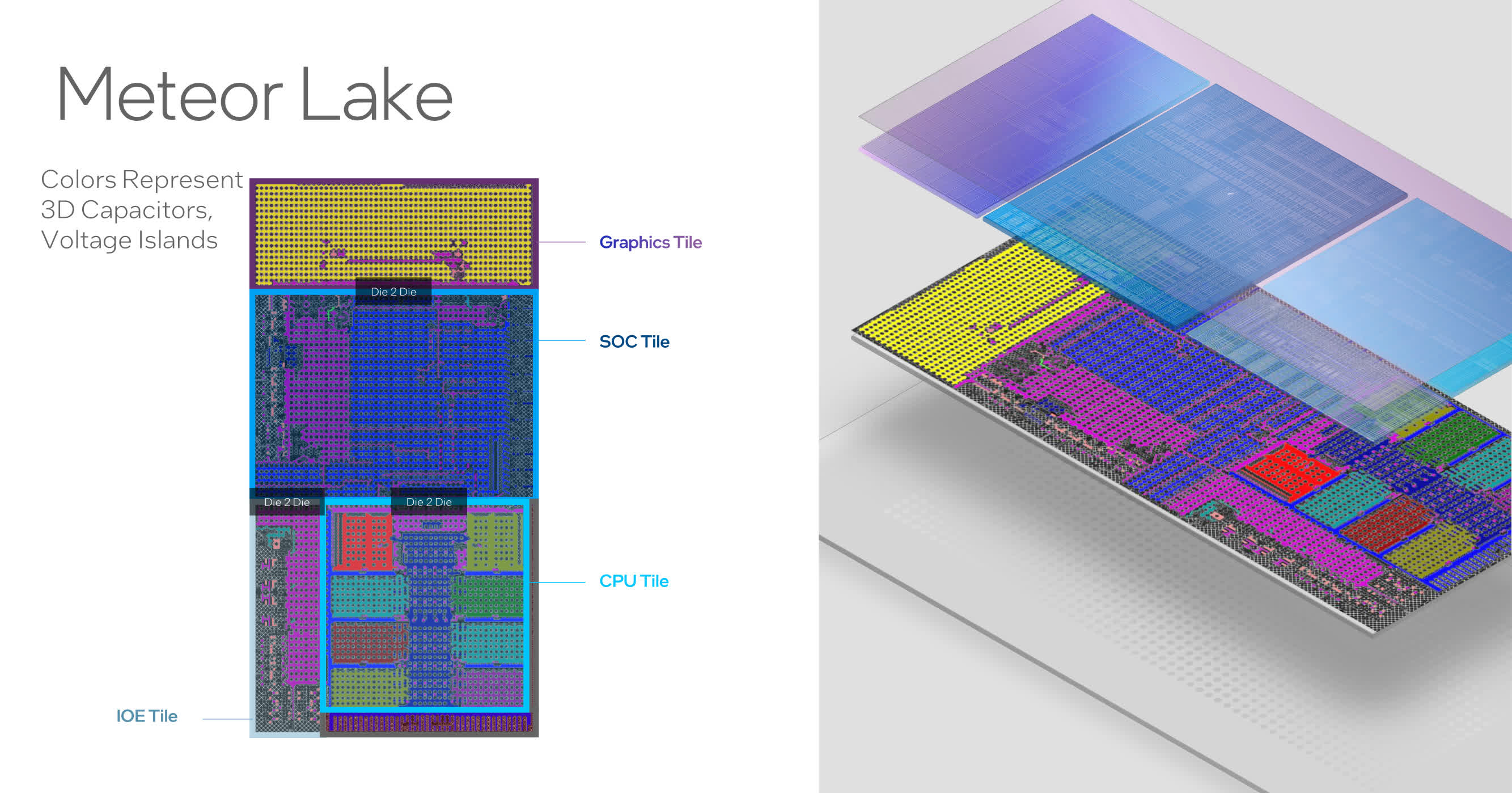In brief: Intel has confirmed it will unveil its Core Ultra CPUs, aka the Meteor Lake chips, alongside the 5th-gen Xeon Scalable processors (Emerald Rapids) at an "AI Everywhere" event on December 14 at 10am ET/7am PT.
Intel previously said that Meteor Lake represents its biggest processor rebranding in 15 years. Disappearing is the familiar "i" from the previous generation Core i3, i5, i7, and i9; they will now be known as Intel Core Ultra 3/5/7/9.
There had been early rumors that Meteor Lake would be available in both the mobile and desktop space. But the chips are primarily designed for laptops, and won't be available in a socketed form that can fit in LGA1851 motherboards; instead, the desktop versions will be fused to motherboards as ball grid array (BGA) packages for use in AIOs, NUCs, and other compact OEM PCs.
As the event's name suggests, there will be a focus on the artificial intelligence-related abilities of the chips, which use Intel's 4nm process and feature the company's first integrated AI accelerators, known as neural processing units. The chips also move to a multi-tile chiplet design. As we previously noted, various components of the finished chips were built using different chip fabrication technologies from several companies and packaged together using a number of Intel's own unique chip packaging technologies.
Intel recently showed off one of its upcoming Meteor Lake processors running Dying Light 2 without a dedicated GPU, highlighting the benefits of its XeSS (Xe Super Sampling) upscaling technology.
We also heard that the possible 185G flagship will likely have a maximum boost clock of up to 5.1GHz, while the 165H and 155H could have peak clock speeds of up to 5.0GHz and 4.8GHz, respectively. Another leak listed the 185H as having 16 cores and 22 Threads and showed it outperforming the Core i9-13900H in single- and multi-core benchmarks by around 4% and 14%, respectively.
The 5th Generation Xeon Emerald Rapids processors, meanwhile, will succeed Intel's 4th-gen Sapphire Rapids Xeon CPUs, and are set to compete with AMD's upcoming Epyc Turin chips.


